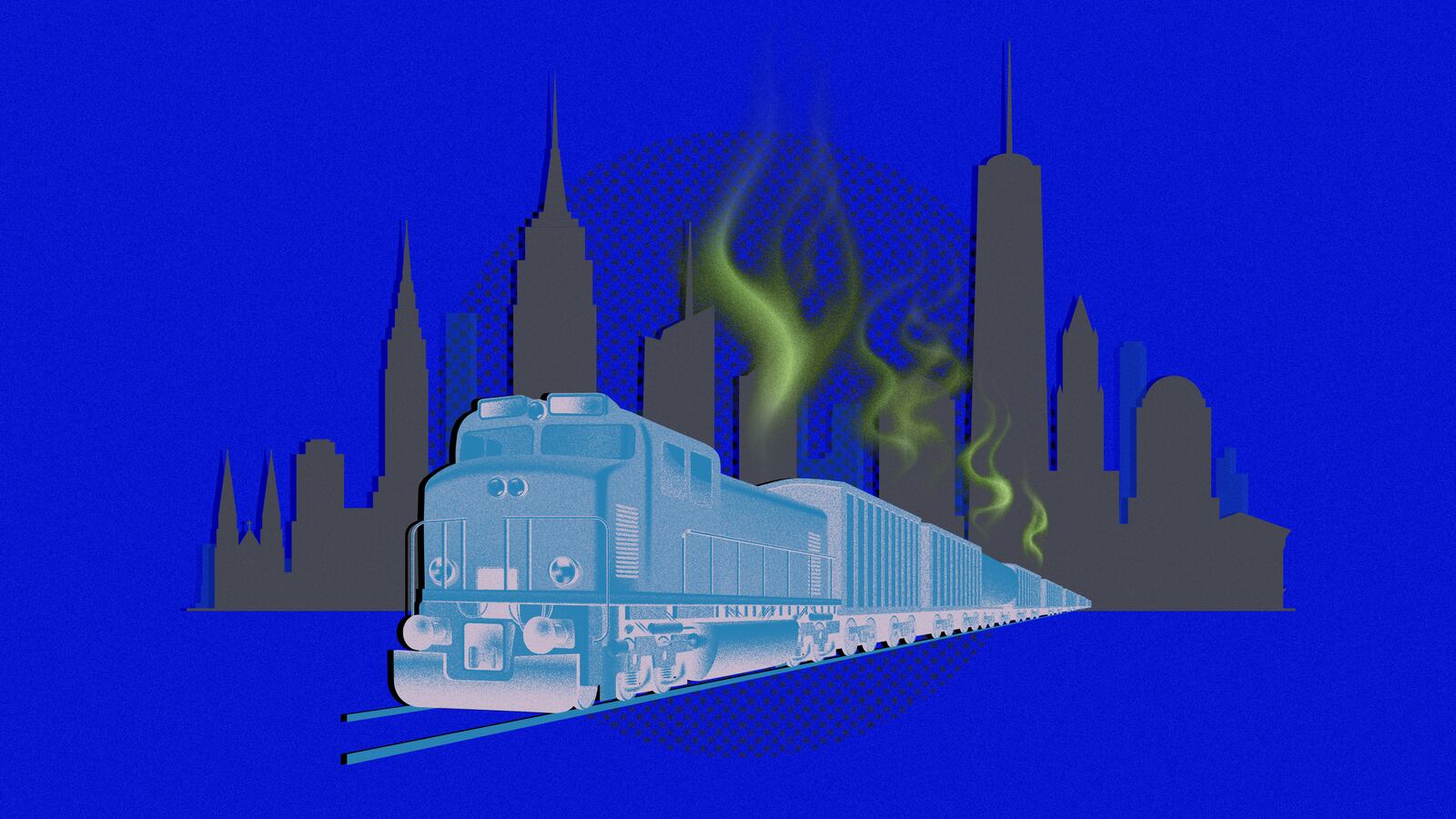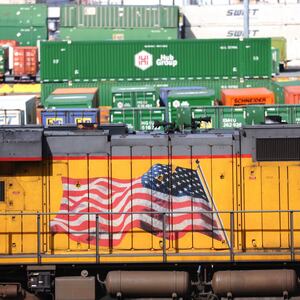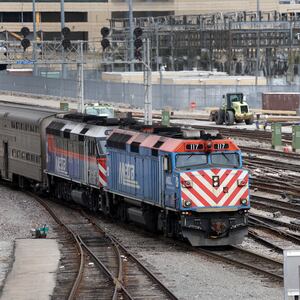Aside from shutting down a massive sector of the global economy ahead of the holidays, a looming national rail strike could end up being a much more visceral experience for New Yorkers.
A tentative deal brokered by the Biden administration fell through on Monday, with one of the freight rail industry’s biggest unions narrowly voting down the labor agreement and sending everyone back to the drawing board. The strike could cost the U.S. economy $2 billion per day, according to The New York Times.
But a strike could be particularly shitty for the 8.8 million people living in New York City—literally.
Across the city’s five boroughs, the 2.4 million pounds of human waste produced daily ends up having to go somewhere.
With the rail strike arriving as soon as Dec. 5, residents of the Big Apple may be in for an entirely undesired gift that keeps on giving: stalled freight containers filled with “biosolids,” the dehydrated and treated version of what is still very much poop.
While the city used to send it straight into the ocean, since the early 1990s, they've been sending the treated remains to landfills, most often by freight rail. The Big Apple has lowered that share going to landfills from around 85 percent to 70 percent (a NYC Department of Environmental Protection spokesperson noted "about one-tenth of one percent" of the city's wastewater ends up on a freight train).
Normally reserved for a subplot of Billions or the unfortunate residents of a town in northern Alabama, the so-called poop trains stemming from the Big Apple have only had notable and smelly snafus on their way to landfills in rural areas. But when the open-air containers—filled with 10 million pounds of excrement—once got stuck in Alabama for two months in 2018, the smell grew so strong that residents resorted to wearing masks (NYC mandates the containers be sealed on top).
Then there's the overall risk of garbage not getting to where it needs to go, which the city's sanitation department has been working on.
In a statement to The Daily Beast, New York City Sanitation Commissioner Jessica Tisch said the city ships out 87 percent of its household waste by rail, “getting trucks off the highways and preventing backlogs in the disposal of 20 million pounds of residential trash every day.”
“Given this, we have spent the past several months monitoring the ongoing possibility of a freight rail workers strike extremely closely and [are] making contingency plans to transition back to shipping trash by truck in the event of a work stoppage,” Tisch said.
“We are working closely with our contracted vendors and are prepared to do all that we can in a worst-case scenario, but let me be clear: a prolonged disruption of the rail network for trash removal represents a very real threat to public health and safety in the City of New York,” the commissioner continued. “For the sake of our neighbors and our neighborhoods, I urge all parties involved to do all that they can to avert a strike.”
The New York City Department of Environmental Protection, which handles human waste and waste water, told The Daily Beast on Friday that the rail cars are mandated to be covered and sealed, and the agency is working on a backup plan to boost the number of trucks in service.
"DEP is working with state regulators on contingency plans including a temporary increase in the use of trucks, and we are in touch with our representatives in Washington on efforts to avoid a rail strike," an agency spokesperson said in a statement.
The stopgap measure of relying on trucks also poses another problem.
“There are not enough trucks in the state to move that much waste,” a government official told The Daily Beast, requesting anonymity because they are not authorized to speak to the press.
The White House did not return The Daily Beast’s request for comment.
Back in September, President Joe Biden called the tentative deal “an important win for our economy and the American people” as well as “a win for tens of thousands of rail workers who worked tirelessly through the pandemic to ensure that America’s families and communities got deliveries of what have kept us going during these difficult years.”
The deal included a 24 percent pay raise across the board by 2024, but also just one additional paid day off for the union workers, and no guaranteed paid sick days for conductors or engineers.
The main sticking point among rank-and-file union members comes down to a points-based attendance system, which penalizes them for taking personal and sick time, according to The Washington Post. Warren Buffett’s BNSF Railway company already has a notorious policy within the industry, penalizing workers for taking time off for family emergencies, illness, and fatigue, according to FreightWaves.
As the rail unions continue negotiating, trash will still have to get picked up.
"In the meantime, the 10,000 members of service of the Department and I will continue to be hard at work implementing contingencies,” Tisch said. “I ask all New Yorkers to watch for further updates from the Department as the situation develops.”
If a deal can’t be reached, a strike could have quickly escalating effects.
As the Alabama residents experienced in 2018, there’s a reason why the treated version of sewage needs to stay on the move and end up in a landfill. A University of North Carolina study on exposure to biosolids found people living near farms using it in fertilizer experienced burning in the eyes and throat.
Even if there were enough trucks to keep the system moving without a hitch, they would require a “wide load” and there would be difficulties in consistently leveling off loads on smaller trucks, as a Toronto feasibility study found in 2013 when the city looked into an upgraded facility to move biosolids by truck.
The biggest global commodity the strike could affect would be the price of oil. Around 300,000 barrels of crude oil make their way over American rail lines each day, according to the American Fuel & Petrochemical Manufacturers.
Even a delay of just a few days could lead to gas and diesel shortages in pockets of the country, and freight operators have also announced plans to halt the shipment of refrigerated containers ahead of the strike deadlines, according to PBS.
While most of the unions have a Dec. 8 strike deadline, two of the smaller ones—the Brotherhood of Maintenance of Way Employees and the Brotherhood of Railroad Signalmen—rejected the contract proposal and can strike sooner, right after midnight on Dec. 5. The company could impose a lockout even sooner, and if the pair of unions go on strike, the rest of the unions would follow suit, leading to an industry-wide work stoppage, according to The Washington Post.
Congress has the authority to intervene under the Railway Labor Act of 1926, giving lawmakers the ability to buy time by forcing the parties into arbitration or extending the strike deadlines.









